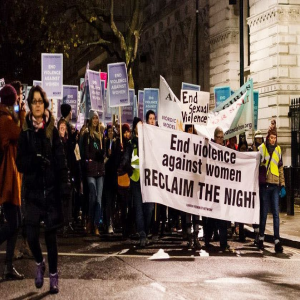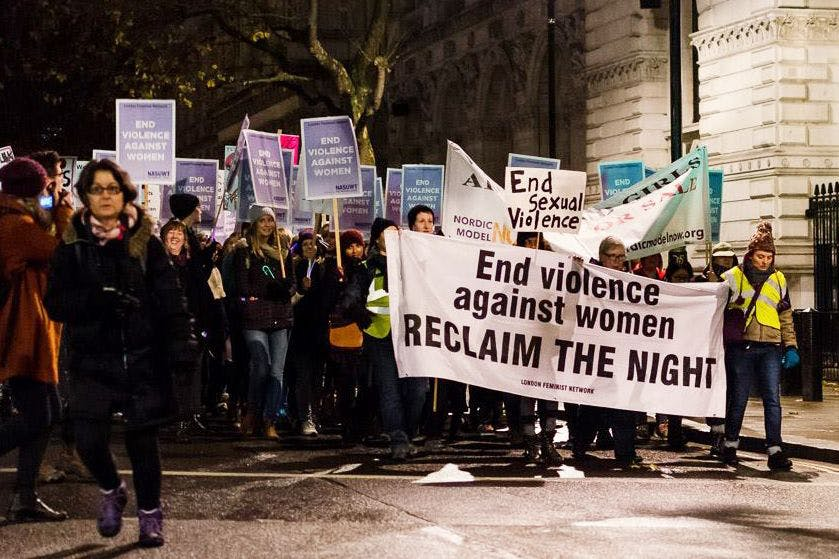
.jpg) Sacaria Joseph
Sacaria Joseph

A 31-year-old post-graduate female trainee doctor was found dead in a seminar room at RG Kar Medical College and Hospital in Kolkata on August 9, 2024. According to initial reports, she had been on night duty and went to the seminar room to rest around 2 am after sharing dinner with colleagues.
Her body was discovered later that morning, partially clothed, with severe injuries indicative of violent sexual assault and strangulation. Notably, hospital authorities failed to report the incident immediately to the police, a serious lapse in protocol and duty.
The parents of the deceased doctor alleged that they were initially misled by the officials of the hospital. They said that at 10.53 am that day, the Assistant Superintendent of the hospital called them to inform them that their daughter was unwell. After 22 minutes, he called again to inform them of her alleged suicide.
Upon reaching the hospital, the parents were made to wait for three hours before they were permitted to see their daughter's body. They were granted permission only after public outcry on the campus and intervention by the Chief Minister.
A post-mortem examination detailed the gruesome specifics of the crime. The doctor was sexually assaulted, strangled, and suffocated to death. The medical report specified injuries indicative of sexual violence, including a broken thyroid cartilage. Additional evidence of brutal assault included bleeding from the eyes, mouth, and vagina, as well as extensive bruising. Severe head injuries further corroborated the violent nature of the attack.
While the delayed police involvement and misleading information provided by hospital authorities raise several uneasy questions, the entire episode has sparked widespread outrage and public demands for immediate justice from across the country and abroad. Following the tragic incident and the consequent public reaction, Dr Sandip Ghosh, the Principal of RG Kar Medical College Hospital, with a controversial past marked by multiple questionable transfer reversals and other allegations, was forced to resign. Despite allegations of his involvement in the crime, the Mamata Banerjee government unexpectedly reinstated him as the principal of the National Medical College Hospital in Kolkata.
This controversial government decision provoked swift public condemnation and legal action. The Calcutta High Court intervened, ordering Dr Ghosh on indefinite leave, effectively barring him from resuming his role as the principal until further notice.
The delayed and unsatisfactory police response, the hospital's attempt to cover up the crime, and the government's questionable handling of Dr Gosh sparked widespread protests and demands for justice, which led to the case being handed over to the CBI. This unfortunate incident has raised serious questions about the safety of healthcare professionals, the integrity of institutional authorities, the credibility of government handling of appointments, and the broader issue of women's safety and their rightful place in society.
In response to this event, Silchar Medical College Hospital in Assam has issued comprehensive guidelines aimed at enhancing the safety of its female doctors, staff, and students. These guidelines recommended avoiding isolated, poorly lit, and sparsely populated areas, as well as situations where individuals are alone. Female doctors are instructed to remain emotionally composed and vigilant about their surroundings while on duty and to interact with the public courteously to avoid attracting the attention of unscrupulous individuals. Students are encouraged to refrain from leaving their hostel or lodging rooms during the night unless absolutely necessary and to inform authorities before doing so. They are also advised to avoid leaving the campus during late or odd hours.
The guidelines sparked widespread criticism for their apparent victim-blaming tone. Critics argued that by focusing solely on individual precautions, the hospital had shifted the onus of safety from perpetrators to potential victims. They contended that these measures implied that women were responsible for preventing assaults rather than holding those who committed such crimes accountable.
In a powerful counter-response to these developments and in solidarity with the deceased doctor and women everywhere, women in large numbers, supported by male allies, took to the streets in cities across India and abroad on the eve of India's 78th Independence Day. Joining the global 'Reclaim the Night' movement, they demanded women's fundamental right to safety and justice in public spaces.
Originating within the broader Women's Liberation Movement of the 1970s, the 'Reclaim the Night' movement emerged as a powerful symbol of resistance against gender-based violence. The first such movement was organised by the Leeds Revolutionary Feminist Group in Leeds, England, on November 12, 1977, in response to the horrific murders of 13 women by Peter Sutcliffe, nicknamed the 'Yorkshire Ripper,' and the subsequent advice of the police to women to avoid nighttime outings.
Instead of addressing the root causes of violence against women, authorities, as often happens, tried not only to blame the victims for the violence they faced but also impose curfew on them. In protest, during the first 'Reclaim the Night' march in Leeds, women demanded the right to walk freely in public spaces at night without fear of harassment or assault. Protesters carried signs declaring 'No Curfew on Women … Curfew on Men' and chanted slogans such as 'Fight Rape' and 'Every Woman Has the Right to Walk Alone at Night Without Fear.'
The movement rapidly spread across England, addressing the escalating violence against women and the pervasive fear that curtailed their freedom of movement. While initially focused on sexual violence, the movement evolved to encompass a broader range of issues, including gender inequality, the experiences of women of colour, systemic injustice, and the concerns of marginalised groups, such as the LGBTQ+ community. The movement emphasised the interconnectedness of these issues, highlighting intersectionality.
Despite broadening its scope, the persistence of harassment, sexual violence, and the policing of women's behaviour underscores the movement's enduring significance. 'Reclaim the Night' marches have become annual events in many countries, serving as platforms for both protest against violence and support for survivors.
The 1960s and 1970s marked a pivotal era for women's rights, often referred to as the second wave of feminism. Expanding upon the suffrage movement's focus on political equality, this wave addressed a broader gamut of issues affecting women. Feminists demanded gender equality across all spheres of life, including the workplace, education, and politics. Reproductive rights, sexual liberation, and challenging traditional gender roles were central to the movement's agenda. Additionally, the fight against violence against women emerged as a critical component of feminist activism during this period.
The surge in feminist consciousness during this time, particularly in the United States and Western Europe, significantly heightened awareness of gender-based violence. This growing understanding created a fertile ground for the emergence of the 'Reclaim the Night' movement. Inspired by this momentum, feminist activists challenged traditional gender roles and advocated for comprehensive equality, building upon the foundational demands established by the first wave of feminism.
Throughout the 1970s, the United States grappled with a surge in violence against women. Landmark events such as the 1975 Philadelphia protests sparked by the murder of Susan Alexander Speeth and the 1978 San Francisco conference organised by Women Against Violence and Pornography in Media (WAVPM) underscored the urgent need for a collective response to gender-based violence. In response to Speeth's tragic murder, women's rights activists in Philadelphia organised the 'Take Back the Night' march in 1975, serving as the American counterpart to the 'Reclaim the Night' movement.
The global movement known as One Billion Rising, launched globally on Valentine's Day in 2012, aligns closely with the goals of the 'Reclaim the Night' movement by advocating for an end to violence against women and girls. This campaign is rooted in the alarming statistic that one in three women will experience violence in their lifetime. To combat this crisis, One Billion Rising mobilises individuals to 'rise' through dance, protest, and community action, demonstrating solidarity with survivors and demanding justice. By fostering a new consciousness around gender-based violence and engaging communities worldwide, the movement extends the impact of initiatives like 'Reclaim the Night.' One Billion Rising's incorporation of artistic ex
Similarly, the #MeToo movement, which gained significant momentum in 2017, has been a powerful force in the fight against sexual harassment and assault. By providing a platform for survivors to share their experiences, the movement has challenged the notion that such incidents are isolated occurrences. It has demanded accountability from perpetrators and institutions alike, sparking a broader conversation about gender, power, and consent. As a result, #MeToo has catalysed changes in workplace policies, legal systems, and societal attitudes toward sexual misconduct.
Both One Billion Rising and #MeToo build on the foundation laid by 'Reclaim the Night,' highlighting the continued relevance and importance of collective action in addressing gender-based violence and advocating for systemic change.
After encountering significant obstacles in the 1990s, the 'Reclaim the Night' movement experienced a resurgence in the 2000s, ignited by several high-profile cases of violence against women. Now an international phenomenon, the movement, also known as 'Take Back the Night' in North America, remains a crucial agent in raising awareness, challenging societal norms, and advocating for an end to violence against women.
While the global movement uses the term 'Reclaim the Night,' India has adopted the powerful slogan 'Take Back the Night.' Following the brutal gang rape and murder of a young woman in Delhi in December 2012, widely known as the Nirbhaya case, the movement in India gained significant momentum. The movement's call for safety and justice resonated further in 2017 when hundreds of women from different Indian cities participated in marches protesting the mass molestation of women during New Year's celebrations in Bangalore.
On the night of March 14, 2024, Kolkata witnessed a massive gathering of women as they took to the streets for a 'Take Back the Night' protest. They made a powerful statement chanting slogans such as 'The Night is Ours,' 'Reclaim the Night,' and the Bengali rallying cry 'meyera, raat dokhol koro' (women, seize the night). The event drew participants from across India and even abroad, united in their determination to reclaim public spaces and challenge the fear and violence that often restricts women's freedom.
The most poignant moment of the protest unfolded at the stroke of midnight. In a spontaneous and powerful display of unity, the women erupted in a chorus of the national anthem. This collective act was more than just a patriotic ex